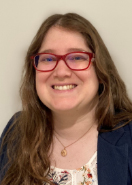Chronic Illness Management
Research overview
What do diabetes, back pain, depression, and heart disease have in common? They're among a host of chronic health problems and disabilities that have traditionally received too little attention from health care systems — until serious complications develop. Modern medicine tends to focus on detecting and treating acute problems, leaving fewer resources for the needs of patients with chronic illnesses, which may be less urgent but are equally important.
Our population is aging rapidly, and people with chronic conditions are living longer. Chronic conditions now affect more than 145 million Americans. About half of Americans over 65 — our nation’s fastest-growing segment — have at least 2 chronic conditions. As our need for improved chronic care grows, health care delivery systems are trying to correct the many deficiencies in current management of chronic diseases.
For over 2 decades, KPWHRI scientists have been developing, implementing, and promoting better models of care for chronic illness. Much of this work is led by the institute's Center for Accelerating Care Transformation (ACT Center), which is widely recognized for its refinement and dissemination of the Chronic Care Model. The ACT Center continues to work with providers nationwide to develop strategies and tools for health care systems seeking to improve chronic illness care.
Such resources are then shared globally through active engagement with international organizations developing guidance and care recommendations. Providers worldwide continue to adapt materials such as the ACT Center’s Patient Assessment of Chronic Illness Care and Patient-Centered Medical Home Assessment surveys.
Recent publications on Chronic Illness Management
Yellen SB, Cella DF, Bonomi A. Quality of life in people with Hodgkin's disease. Oncology (Huntingt). 1993;7(8):41-5; discussion 46, 50-2. PubMed
Simon GE, Daniell W, Stockbridge H, Claypoole K, Rosenstock L. Immunologic, psychologic and neuropsychologic factors in multiple chemical sensitivity: a controlled study. Ann Intern Med. 1993;119(2):97-103. PubMed
Guralnik JM, LaCroix AZ, Abbott RD, Berkman LF, Satterfield S, Evans DA, Wallace RB. Maintaining mobility in late life. I. Demographic characteristics and chronic conditions. Am J Epidemiol. 1993;137(8):845-57. PubMed
Ormel J, Von Korff M, Van den Brink W, Katon W, Brilman E, Oldehinkel T. Depression, anxiety, and social disability show synchrony of change in primary care patients. Am J Public Health. 1993;83(3):385-90. PubMed
McBride C, Roberts A, Knox A, Cundy T. Screening for diabetes during pregnancy. Comment on BMJ. 1993;306(6869). P 350-60. PubMed
Researchers in Chronic Illness Management
 Beverly B. Green, MD, MPHSenior Investigator |
 James D. Ralston, MD, MPHSenior Investigator |
 Paula Lozano, MD, MPHSenior Investigator; Director, ACT Center |
 Gregory E. Simon, MD, MPHSenior Investigator |
 Katharine A. Bradley, MD, MPHSenior Investigator |
 Dori E. Rosenberg, PhD, MPHSenior Investigator |
 Ben Balderson, PhDSenior Collaborative Scientist |
 Yu-Ru Su, PhDAssociate Biostatistics Investigator |
 Chloe Krakauer, PhDCollaborative Biostatistician |
 Mikael Anne Greenwood-Hickman, MPHSenior Collaborative Scientist |
 Laurel Hansell, MA, MPHCollaborative Scientist |
 Claire Allen, MPHManager, Collaborative Science |
 Morgan Justice, MACollaborative Scientist |
Affiliate Researchers in Chronic Illness Management
Laura-Mae Baldwin, MD, MPH
Professor, Department of Family Medicine
University of Washington
Linda LeResche, ScD
Associate Dean for Research, School of Dentistry
Professor, Oral Medicine
University of Washington










